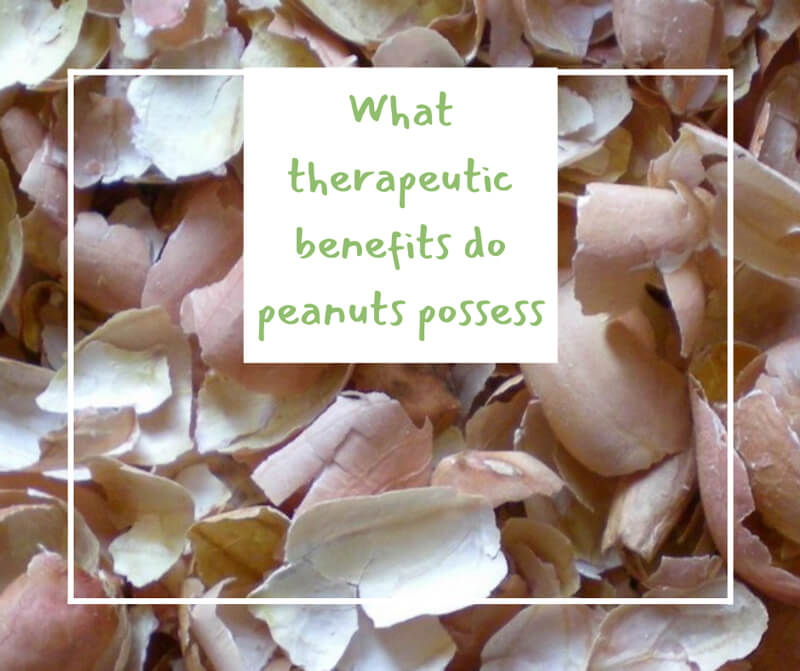What therapeutic benefits do peanuts possess
Peanut is one of the most widely consumed nuts in the world since it is used to make a variety of products that are part of the diet, including oil, butter, sweets, pastries, etc. ., with a large number of benefits.
Peanut is rich in antioxidants such as vitamin E, manganese, and resveratrol, a phenolic antioxidant also found in wine, which can prevent cerebrovascular accidents and colon cancer, among a large number of diseases. Peanut is very rich in protein and amino acids are good for the growth and development of the human body.
It provides a lot of energy and is rich in antioxidant vitamins, nutrients, and minerals, which are recommended for athletes.
The polyphenols we get from peanuts have the potential to reduce the risk of stomach cancer by reducing the production of carcinogenic nitroso-amenes. It reduces the risk of heart disease, Alzheimer’s, or various infections.
Peanuts contain vitamin E, the vitamin that cares for the cells of the mucous membrane of the skin. Roots are kept free and our younger skin stays longer.
Peanuts belong to the legume family but have all the nutritional characteristics of oleaginous fruits, such as almonds, walnuts, hazelnuts, or even cashews. This category of food has very interesting nutritional value since it contains both good fats (mono and polyunsaturated, cardioprotective), proteins in interesting quantities.
We tend to forget it, but peanuts are rich in protein and can replace animal proteins such as meat or fish. Essential for cell function, tissue repair, muscle growth, and recovery, protein cannot be excluded from a balanced diet. Vegan people who do not consume any animal protein can find in peanut butter an interesting alternative.
Being rich in mono-unsaturated fats, peanut skin extracts are particularly suitable for combating some pathologies deriving from cardiovascular problems. In addition to benevolent fats, it is also good to underline the presence of some antioxidants, such as oleic acid and resveratrol, which are probably able to play an active role in the prevention of some types of cancer.
If consumed before and during pregnancy, the folic acid present in the fruit protects the unborn child from any neural tube defects. According to a recent study, the risk is even reduced by 70%.
An anticancer food?
A prospective study, although with some limitations, associated eating two or more servings of peanuts per week with a lower risk of colorectal cancer in women. Peanut skin extract also contains certain compounds that are potentially beneficial in preventing cancer. These include phytosterols: in vitro and animal studies have shown them the ability to reduce the growth of cancer cells in the breast, colon, and prostate. In humans, phytosterols are associated with a decreased risk of lung cancer. As mentioned earlier, peanuts also contain resveratrol, an antioxidant that is believed to have the ability to turn into an anti-cancer compound called piceatannol.
Depression
One of the causes that often lead to depression is low serotonin levels. The tryptophan present in these fruits increases the release of serotonin and therefore brings benefits in the prevention of this pathology. For this purpose, it is recommended to consume peanut skin extract.
The resveratrol in peanuts has antioxidant properties that may help fight heart disease. This is why peanuts appear to have cardioprotective effects similar to those of other foods containing resveratrol.
Peanut skin extract is the seed husk extract from peanuts which mainly contains flavonoids such as procyanidin, resveratrol, and quercetin for hemostasis. Resveratrol is a type of herbal antitoxin that has been found to inhibit cancer cells, reduce blood lipids, prevent cardiovascular disease, antioxidant and anti-aging effects are relatively evident. Therefore, the development prospects for the extraction of polyphenols from the peanut skin and their application in food and medicine, especially health food, are very broad.
It can regulate blood pressure and blood lipids and is usually taken with boiling water. In addition, it can also treat heart disease and coronary heart disease. Peanut has the function of lowering blood fat and blood pressure, which is mainly related to the flavonoids contained in it. In addition, peanut shell extract has antioxidant, antibacterial, anti-inflammatory, antitussive, and expectorant effects, as well as lowering cholesterol and relieving atherosclerosis.



 Healthier Future
Healthier Future